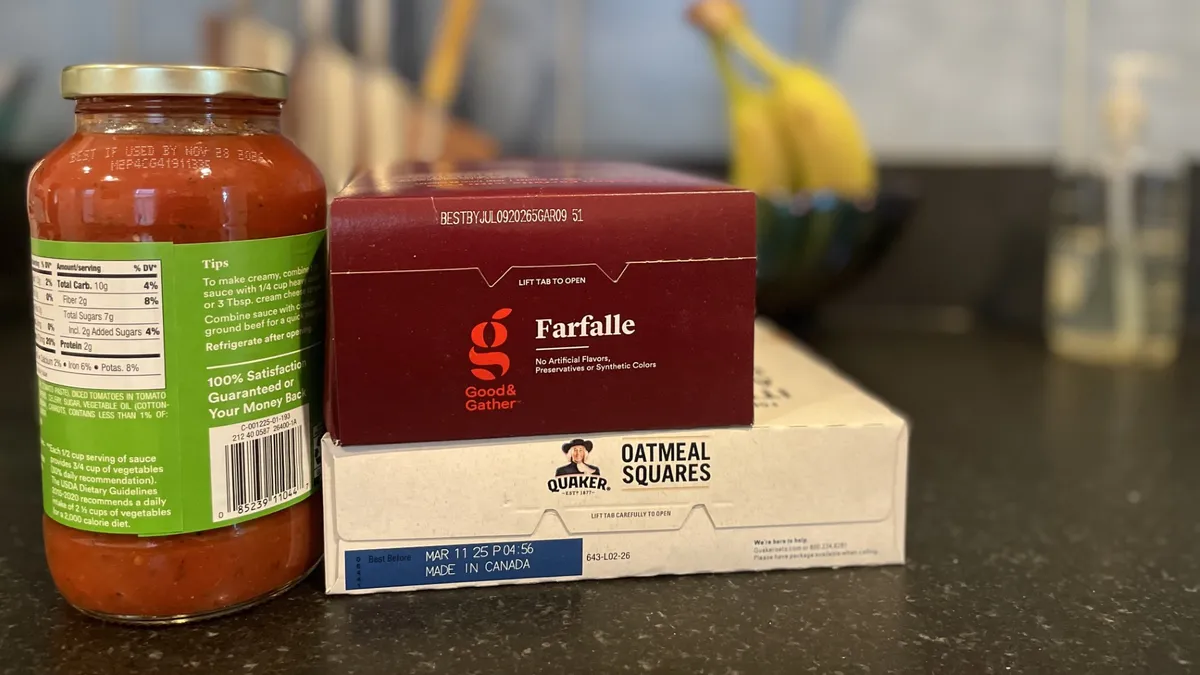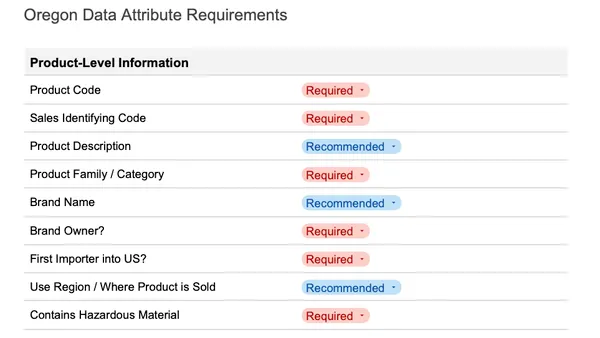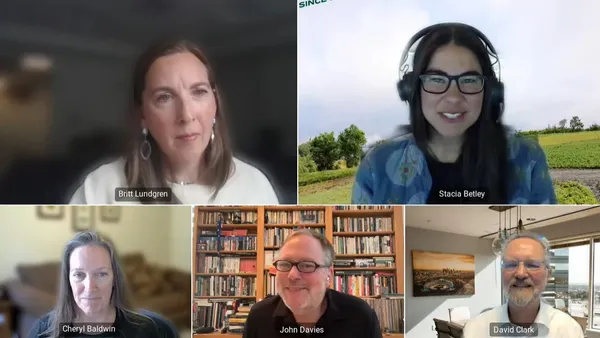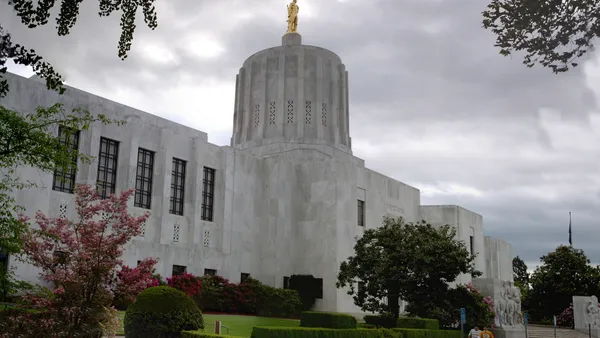California Gov. Gavin Newsom acted on the final set of packaging-related bills that were on his desk, including approval of a first-in-the-nation law to standardize food date labels.
This followed his recent approval of a bill to further restrict the use of plastic carryout bags and encourage reusable bags or paper bags with recycled content.
| Bill number | Topic | Status |
| AB 660 | Date label standardization | Signed |
| SB 1053 | Plastic bag ban update | Signed |
| SB 551 | PCR reporting update | Signed |
| SB 1147 | Microplastics | Signed |
| AB 2214 | Microplastics reporting update | Vetoed |
Date labels
Newsom’s approval of AB 660 will require food manufacturers, processors and retailers to comply with a standardized approach to date labeling by July 1, 2026.
The law’s goal is to avoid consumer confusion and for such labels to signify “the date by which the product should normally be used to ensure consumer quality.” The new labels must adhere to the following guidelines:
- Quality dates: “BEST if Used by” or “BEST if Used or Frozen by”
- Safety dates: “USE by” or “USE by or Freeze by”
- Prohibited: “Sell by”
The law includes other language about specific products, such as milk, and has further details on labeling requirements. It notes that the new standardized date labeling requirements do not apply to infant formula, eggs, or beer and other malt beverages.
While federal agencies also recommend the “best if used by” approach, and a food date labeling bill has been introduced in Congress, there is not currently a national policy on this issue. The U.S. EPA and others view date label standardization as a key step to reducing food waste.
The bill had support from many environmental groups, as well as local waste and recycling organizations, and no recorded opposition. Two of its primary co-sponsors were Californians Against Waste and the Natural Resources Defense Council.
“The inconsistent use of phrases like ‘Sell By,’ ‘Expires On,’ ‘Freshest Before,’ and others makes for an impossible-to-navigate system for consumers who don’t want to throw away good food or make their families sick,” said Erica Parker, a policy associate with CAW, in a statement that described confusion over date labels as a “leading cause” of food waste.
“Standardizing food date labels is a commonsense solution that will keep more money in people’s pockets and food on families’ plates, while reducing climate-warming emissions,” said Victoria Rome, director of California government affairs at NRDC, in a statement.
PCR reporting
Existing California law (AB 793) requires plastic beverage containers that are part of the state’s container deposit system to include certain amounts of postconsumer recycled content by set dates. SB 551, which Newsom signed, aims to clarify reporting requirements for that law.
According to the bill’s author, state Sen. Anthony Portantino, the original intent of AB 793 was for beverage companies to report on progress “across their portfolio rather than by specific product line,” but that didn’t happen.
“When regulatory staff implemented mandatory minimum recycled content legislation, they narrowly interpreted the definition of ‘beverage manufacturer’ to be every bottling plant. Balancing the compliance and reporting across all product lines takes into consideration supply chain and production realities,” said Portantino in an Aug. 28 bill analysis.
According to that report, supporters of SB 551 included the American Beverage Association, Association of Plastic Recyclers, Consumer Brands Association and The Recycling Partnership. There was no recorded opposition.
Microplastics
Newsom also acted on two microplastics-related bills. His approval of SB 1147 will direct California’s Office of Environmental Health Hazard Assessment to study health effects from microplastics in drinking and bottled water, and provide biennial updates.
Newsom vetoed AB 2214, which would have required the state’s Ocean Protection Council to lead an interagency group to “recommend statutory changes and adopt a workplan to implement recommendations from the 2022 Statewide Microplastics Strategy.” In a veto message, Newsom called this bill “premature” because existing law already requires the OPC and related partners to deliver policy recommendations to the state legislature by December 2025.
Both bills had support from various environmental groups and no recorded opposition.











